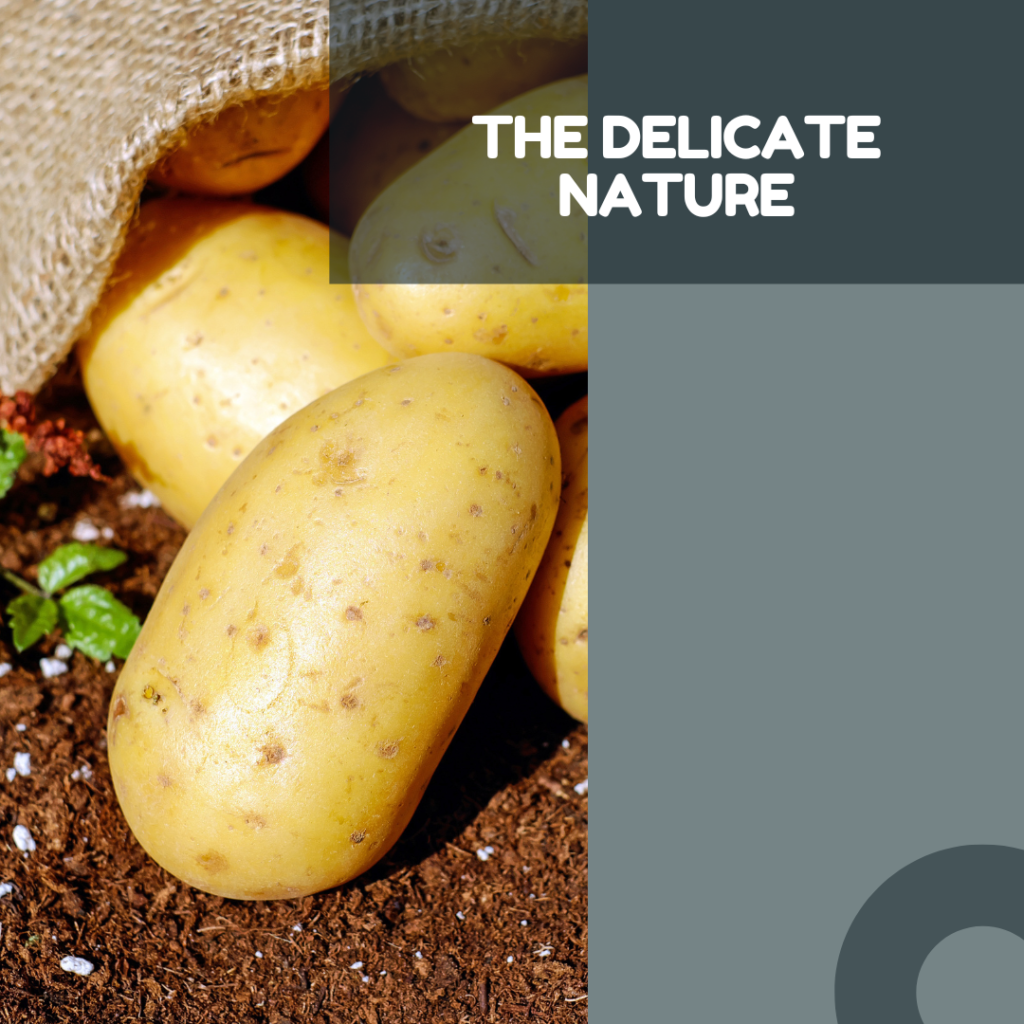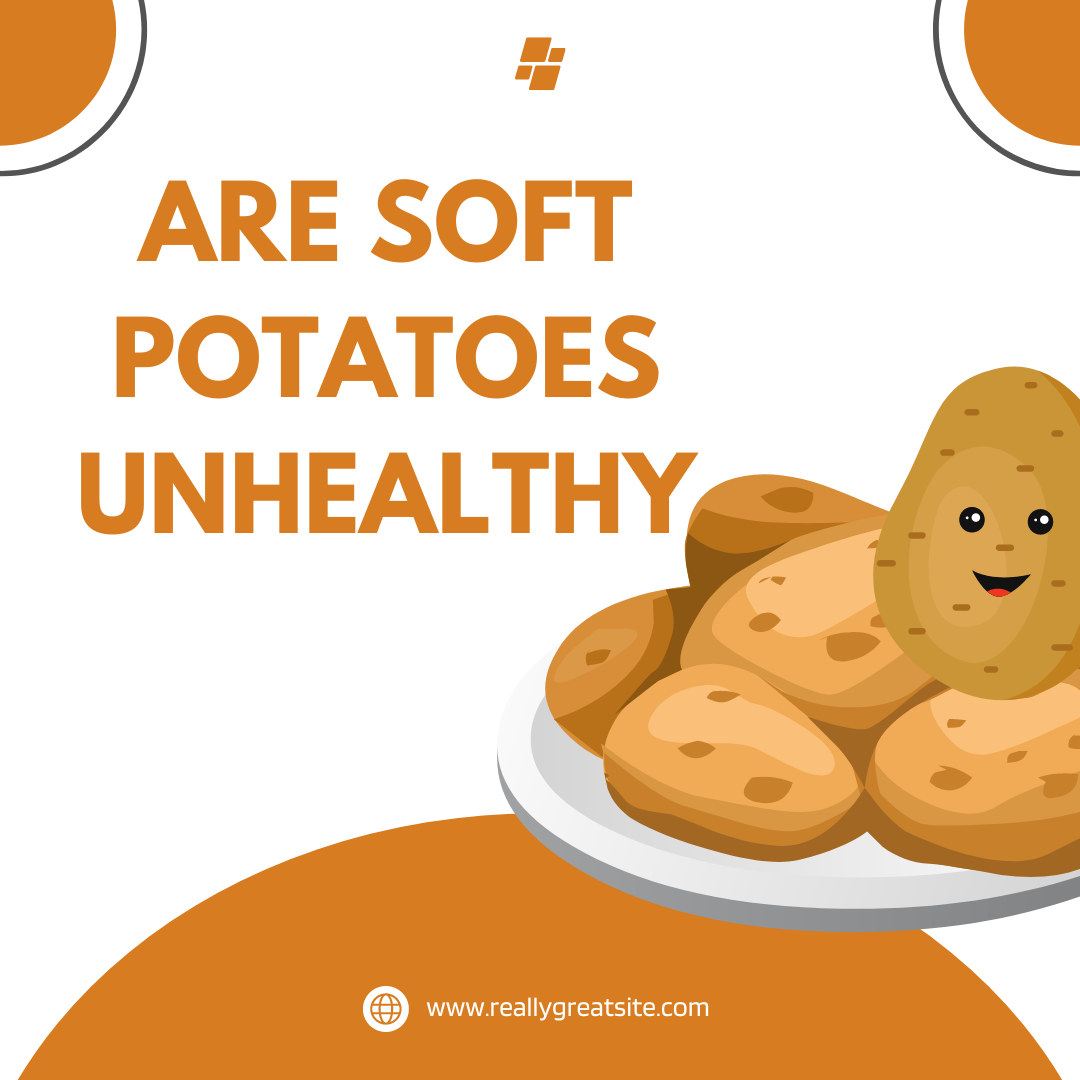Unveiling a culinary conundrum, the inquiry into the health implications of soft potatoes prompts curiosity. Are soft potatoes unhealthy? The revelation of the results may startle you, challenging conventional beliefs about this kitchen staple. In a mere touch, potatoes can transition from firm to mushy, prompting concerns about edibility and nutritional value. Surprisingly, softness doesn’t inherently render potatoes unhealthy; it’s a matter of understanding the underlying causes. Decay, spoilage, or overripeness can compromise their quality. The anticipation of results adds a layer of intrigue to this everyday scenario, inviting a closer look at the implications of soft potatoes on both culinary practices and nutritional considerations. Let’s embark on an exploration that unearths the unexpected truths behind the texture of potatoes and its surprising connection to our well-being.
Why my potatoes seem softer?
Not understanding why potatoes go mushy is a problem. If we can determine why it happens, though, there’s a chance we’ll be able to take appropriate action.
Age
Age in years comes first. Like bread in your cabinet or apples in your fruit bowl, potatoes have an expiration date. With time, they gradually get softer and lose their hardness.
Insufficient Storage
Let’s talk about storage now. The tastes of potatoes are highly specific. They don’t like it when it’s too hot, chilly, bright, or damp. They prefer arid, gloomy, and chilly surroundings. They will start to sprout and soften if kept in excessively warm, light, or humid conditions.
Disease or Trauma
There are instances where illness or damage results in potatoes turning mushy. Like a cold or bruise, just with potatoes instead of people. It is advised to throw away the potato if you notice any signs of illness or damage, such black spots or a moldy smell.
How to Determine Which Type of Potato Is Soft
The delicate nature

Soft potatoes have a texture that is slightly mushy and wrinkled skin. Even though a tiny amount of softness in potatoes is innocuous, it is important to assess their condition before consuming them. A whole potato should, in general, feel substantial to the touch. If your potato is mushy and pliable when touched, it may be past its prime, but it’s still safe to eat.
Illness
Potatoes can become discolored in a number of ways. The color of a sweet potato can change, ranging from dark brown to black.
Conversely, exposure to light for an extended period can cause regular potatoes to turn green. The presence of odd colors may indicate spoilage or that the potato is on the verge of going bad.
The Verdant Areas
Potatoes get green patches because light exposure increases the production of the toxin solanine. Remove any green parts from the potato before cooking it completely, as solanine can upset your stomach. However, it’s advisable to discard a fully green potato.
Spots of mold
Mold stains are a clear sign that food is rotting.
If mold is discovered on your potatoes, it is strongly recommended not to consume them. Eating the potato with mold may pose health risks due to potential deeper mold penetration.
Dark Areas
Black spots on potatoes usually indicate bruising or damage incurred during storage or transit. The potato can usually still be utilized when the black spots are removed. Still, if the potato has an excessive number of black patches, it’s preferable to discard it.
harm
Hard handling or storage conditions often cause bruising on potatoes. Depending on how much of the bruised potato remains, you may still be able to eat it after chopping it away.
Potatoes that are starting to sprout may lose some of their flavor and texture as they begin to grow new tubers. You can trim off small sprouts from potatoes and they will still work.
Scent
The potato may be rotting if it has a strong, unpleasant scent coming from it. A unpleasant smell coming from a potato should be avoided since it could indicate the growth of bacteria or perhaps a foodborne illness.
By examining your potatoes’ softness, discoloration, green, mold, or black spots, bruising, sprouts, and smell, you may determine whether or not they are safe to consume.
What are the recommended usage and possible problems?
| Condition | Potential Issues | Suggested Uses |
|---|---|---|
| Soft/Mushy Texture | Overcooking or improper storage | Mash for mashed potatoes, soups, stews, etc. |
| Sprouting recipes | Cut off mouldy parts, use unaffected areas | Remove sprouts, use in regular |
| Green Skin | The natural ageing process is not harmful | Remove sprouts, use in regular moderation |
| Wrinkled/Shrivelled | Dehydration or prolonged storage | Cut off affected areas, use in stews |
| Moldy Spots | Spoilage due to moisture or improper storage | Cut off moldy parts, use unaffected areas |
How would eating soft potatoes make you feel?
If soft potatoes aren’t spoiled, they’re usually OK to eat. When a potato is only little squishy from aging and shows no other signs of deteriorating, you can typically safely eat it. In comparison to your typical experiences, it might not taste as fresh and have a very terrible texture, but it won’t hurt you.
But if a potato is mushy because it’s starting to decay, then things alter radically.
A rotting potato’s first telltale signs include a sour smell, a mushy texture, green peel, or sprouts.
Should Potatoes Be Refrigerated?
Given that many of the veggies we consume on a daily basis stay fresher for longer when stored in the refrigerator, it makes sense that you would be wondering if you should store your potatoes there.
Without a doubt, potatoes shouldn’t be stored in the fridge. Refrigerating potatoes helps convert their carbohydrates into sugar, which enhances their sweetness.
As advantageous as this might sound, cooking it causes the potato to lose its flavor and may turn it brown.
The following are some fruits and vegetables that should not be refrigerated:
Sweet potatoes, garlic, and onions
Cooking potatoes may cause browning and flavor loss. Adjust your cooking methods to preserve their visual appeal and taste.
Here are some additional fruits and vegetables that don’t need to be refrigerated:
- sweet onions and potatoes
- Onion
- Fresh tomatoes lose their flavor and become mushy if they are refrigerated. Therefore, avoid doing this.
- Winter Cucumbers and Squashes
- Refrigerating bananas can impact their texture, and the peel may prematurely turn brown. To preserve their quality and appearance, consider storing bananas at room temperature.
How to prolong potato storage to maintain its freshness
If stored properly, your tubers should last for several weeks or possibly months. Here are a few crucial pointers:
Seek potatoes with smooth skin, devoid of blemishes, and small indentations on their skin at the immaculate grocery shop.
Transfer potatoes from a plastic retail bag to a basket to allow for proper aeration. This step ensures optimal storage conditions and helps prevent moisture buildup, maintaining the potatoes’ quality
You should wait to wash the potatoes until you’re ready to boil them. While keeping potatoes damp could lead to the formation of mold, the presence of dirt prevents potatoes from decomposing too quickly.
Potatoes store best between 45° to 55°F, but it is essential not to keep them below that temperature.. If you store them in your refrigerator or similar cold spot where the starches can turn to sugar, it will affect the texture and taste. More than 55°F will speed up the process of dehydration.
Keep potatoes out of direct sunlight and store them in a cold, dark place, such as a cellar.
You shouldn’t store potatoes and onions together. Onions give off a gas that causes potatoes to decay faster.
The Final Word
So, is eating soft potatoes safe? Their level of mushiness and the reasons behind it all rely on each other. In general, if something is slightly stale but still has a pleasant appearance and scent, it is okay to eat.
Conversely, a mushy potato from rotting is not something you should eat. Rotten potatoes might contain dangerous microorganisms and mould that can harm you. Continue to enjoy your potatoes, crisp or somewhat mushy. All you need to remember is that food safety comes first. Toast to boiling potatoes!

